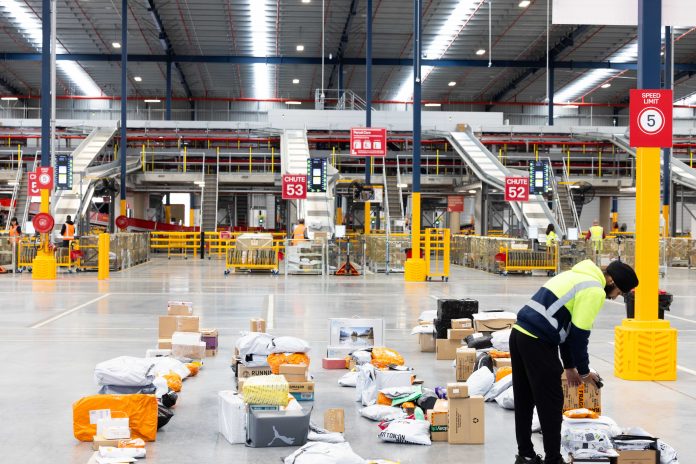As cost-of-living pressures continue to bite, Australians are being more selective with where and when they spend their money, according to Australia Post’s new quarterly ‘Inside Australian Online Shopping Report’.[1] “With consumer buying confidence at low levels[2], Aussies across the country, particularly our younger generations, are becoming ‘strategic shoppers’ — looking for ways to maximise the value of their dollar and increasingly take advantage of key sales events,” the report found.
“While online retailers have reported a slow start to 2023, May bucked this trend, up 5.7% compared to last year, which was largely driven by May sales events.
“Despite a softening overall in online purchases, household participation in online shopping continues to grow steadily, with 9.4 million households, or 82% of the Australian population, making an online purchase during the 2023 financial year.
“Over the last quarter of financial year 2022-23, the Report identifies on average 5.5 million households made an online purchase each month, an increase of 3.9% compared to the equivalent quarter last year. However, consumers are spending less online overall, with online spend down 3.1% compared to last year.[3]”
An Australia Post consumer survey conducted this year revealed that 85% of Aussies aged 18–34 plan to shop (or have shopped) during dedicated sales events.[4] This was apparent in the Report with number of online purchases for EOFY sales up 4.3% compared to the same period last year.
Customer loyalty programs and bundling services are proving popular with online shoppers, with one in four consumers turning to online retail subscriptions as part of their cost saving practices.
Australia Post Executive General Manager Parcel, Post and eCommerce Services Gary Starr says that while an increasing number of households made an online purchase in the fourth quarter (compared to the last year), it’s clear that cost-of-living pressures are taking effect.
“Aussies are now more cautious and selective with where and when they spend their money, which is why online shopping carts are averaging smaller than last year. Our love affair with online shopping hasn’t waned, however cost-of-living pressures are creating short-term headwinds.
“This is an opportunity for retailers to entice customers via sales events, subscriptions or other forms of rewards that create loyalty and repeat purchases.”
Regional Australia continues to see strong year-on year (YoY) growth in online shopping, increasing 4.2% YoY in the last quarter, compared to just 0.7% YoY in metro areas. The Northern Territory led the charge in this last quarter, with an increase of 9.3% YoY in online sales compared to last year, with residents seeking to tap into the convenience and accessibility of online shopping.
In support of changing consumer needs Australia Post has continued to invest in new parcel facilities, fleet and technology including the installation of more than 700 parcel lockers and the Australia Post app, which allows customers to easily track parcels and manage their deliveries and collections, all from their mobile device.
For more information, visit ‘Australia Post Quarterly Online Shopping Report.’
[1] Australia Post parcel delivery data analytics and other sources of data.
[2] ANZ-Roy Morgan Consumer Confidence, June 2023.
[3] CommBank IQ: First five months of 2023.
[4] Australia Post Consumer Segmentation Survey, Feb 2023.





